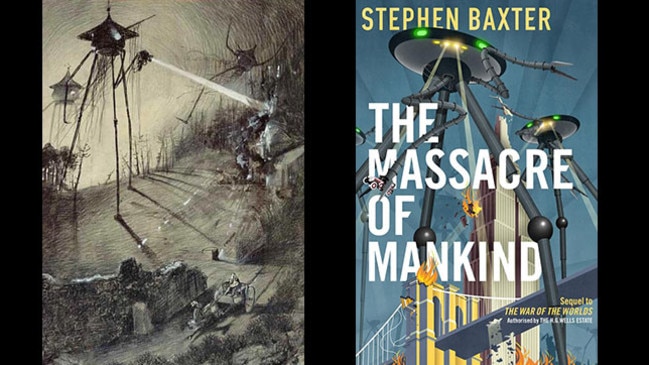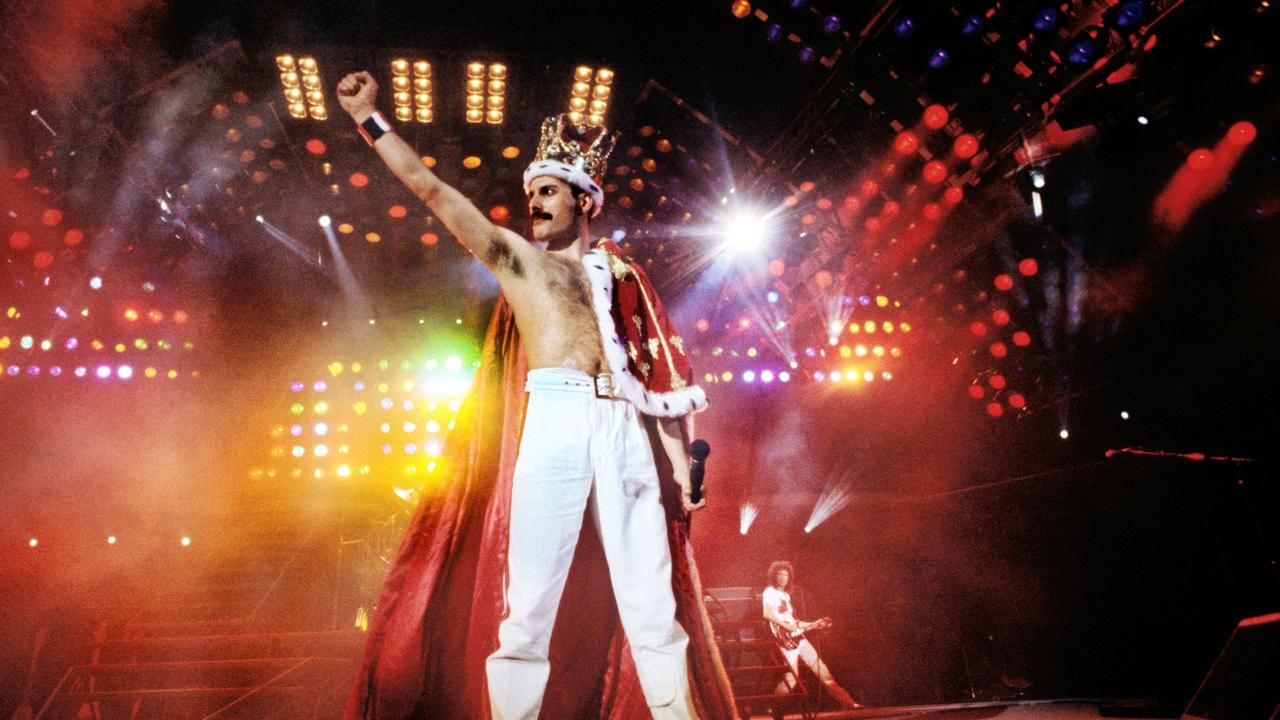Stephen Baxter, Massacre of Mankind: HG Wells’s Martians coming again
British sci-fi writer Stephen Baxter has been given the job of creating a sequel to HG Wells’s The War of the Worlds.

HG Wells’s The War of the Worlds has a legitimate claim to being one of the most influential novels of the past 150 years. While it wasn’t the first science fiction novel, its success not only paved the way for the genre but coalesced many of the tropes that have come to define it.
Without The War of the Worlds, Mars might never have become known as an ancient, dying world, a place that would fuel the imaginations of generations of writers and scientists; without The War of the Worlds the ideas of alien invasions (or indeed aliens) and interplanetary warfare might never have wound their way into our cultural DNA.
All that being the case, the real surprise is that the Wells Estate held out until now to authorise a sequel, although given its copyright expired at the end of last year, it’s difficult not to wonder whether the fact we’re seeing one now might not be at least partly about a desire to get ahead of the curve.
Either way the decision to tap British science fiction writer Stephen Baxter for the job must have been a bit of a no-brainer: not only is Baxter a considerable figure in British science fiction (a form that continues to operate one step sideways from American science fiction) but he is the author of the much-lauded 1995 sequel to The Time Machine, The Time Ships, which was also approved by the Wells Estate.
The resulting book, The Massacre of Mankind, begins in 1920, 15 years after the first invasion. In England a devastated nation is still struggling to come to grips with the shock of the slaughter and destruction it endured; after two successful attacks on France an expansionist Germany has forged close ties with the US and Britain, while war continues on the Eastern Front, a conflict that provides German scientists and engineers with a useful testing round for new weapons that draw on the technology left behind by the retreating Martians.
Yet these conflicts are shadowed by the constant fear the Martians will return. This is realised when the ominous puffs of cannons are glimpsed on the planet’s surface once more.
Like its predecessor, The Massacre of Mankind purports to be the account of a civilian caught up in the conflict, in this case Julie Elphinstone, the sister-in-law of the narrator of The War of the Worlds, Walter Jenkins (since Wells’s original narrator is unnamed, the name seems to be Baxter’s). Julie is no great admirer of Walter (or indeed his brother), who abandoned her during the first attack and, despite the fame and fortune his account have brought him, is now a surprisingly pathetic figure, scarred physically and psychologically by his experiences and obsessed with the possibility of a second attack.
Yet when Walter makes contact with her to warn her the attack is on its way, she finds herself drawn inexorably into the conflict.
As before, the attack begins in England. This time the Martians arrive in greater numbers, establishing a beachhead and overwhelming Britain’s armed forces. But this is only the first phase. With England secured, a second wave arrives, attacking cities around the world with ruthless and terrifying efficiency.
At his best Baxter produces big-picture Clarkean science fiction of a very high order. And while he could never be accused of being a high stylist, novels such as his Xeelee sequence or his recent Flood/Ark and Proxima/Ultima duologies are exhilaratingly accomplished exercises in hard science fiction. The Massacre of Mankind is a more intimate creation, and perhaps because of that takes obvious pleasure not just in pastiching Wells’s style, but the science and technology of the original novel’s setting.
Baxter has huge fun imagining a solar system informed by the theories of the “discoverer” of the Martian canals, Percival Lowell, and others about planetary evolution.
The narrative structure of the original, in particular the extended prelude to the actual attack, lends it a gorgeous elegiac power. While the decision to reproduce that here makes The Massacre of Mankind overlong, the intertextuality is frequently surprisingly entertaining. This is most evident in flourishes such as the complaints of several characters about the inaccuracy of Walter’s original account (and the almost-cameos by the “man of the future”, Wells himself), but it has its serious side as well.
Baxter demonstrates the degree to which the anxieties of Wells’s time about the weakness of the herd and the decline of society continue to echo through contemporary debates, perhaps most chillingly in his portrait of a fascist and ruthlessly patriarchal post-invasion England. Yet it is not the echoes of the past that resonate most powerfully through The Massacre of Mankind but the possibility that in the Martians, a race marooned on a dying world devoid of animals and other life, we might glimpse something of our own future.
James Bradley’s first novel for young adults, The Silent Invasion, is published next month.
The Massacre of Mankind
By Stephen Baxter
Hachette, 544pp, $32.99


